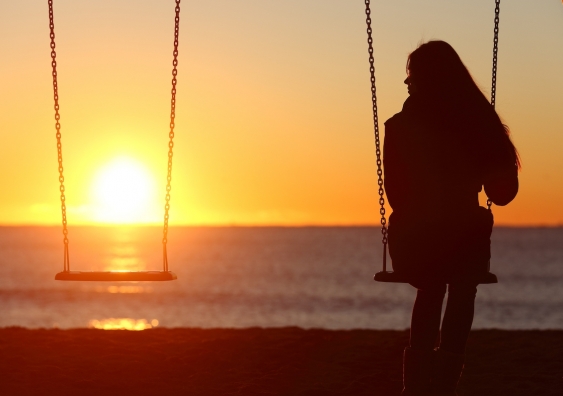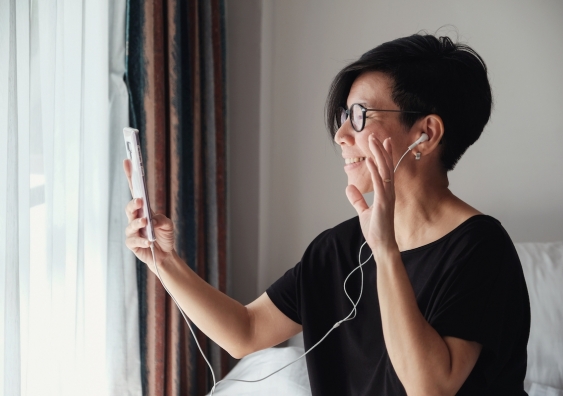Loneliness: unpacking the silent epidemic damaging our health
A better understanding of loneliness can help us identify when our social needs might be going unmet.
A better understanding of loneliness can help us identify when our social needs might be going unmet.

Many parts of our daily lives have changed since the beginning of the COVID-19 pandemic. For some, there was a silver lining to saying goodbye to the office and culling events from our social calendars. But even the most introverted of us would admit we were feeling lonely sometimes.
Indeed, the research emerging now is confirming that loneliness did increase during the pandemic. But loneliness was a pressing issue worldwide, even before we were cut off from many of our social connections by the pandemic. One estimate says that one in four adults feel lonely three or more days a week.
“Our interaction with the world is shaped by the fact we are designed to be socially connected to others,” says Associate Professor Lisa A. Williams, a social psychologist from the School of Psychology, UNSW Science. “When we don’t have that, it can be just as distressing and maladaptive as not securing any other fundamental need.”
As social beings, the need to belong is as fundamental as water, food, shelter and safety. Many psychological processes are oriented around our desire to belong. It’s why we pay more attention to social situations and are particularly sensitive to social rejection.
“As a society, we’re improving at recognising the importance of self-care practices. The next step is being more intentional about checking in about whether our social needs are being met,” A/Prof. Williams says.
Loneliness is the subjective feeling we lack in our social connection. While we often equate loneliness with social isolation, it’s not just about the absence of interaction or our number of social ties. It’s about the quality and quantity of our connections meeting our expectations.
“Loneliness is a feeling of distress that you’re not having your social needs met,” A/Prof. Williams says. “No one else can tell you if you’re feeling lonely; it’s something only we can sense for ourselves.”
Everyone can feel lonely from time to time, and it can be quite a normal response to changing life circumstances. Day-to-day, our social needs – and how they’re met – also shift, so it’s perfectly normal to have peaks and troughs. But prolonged loneliness can significantly negatively impact our health and well-being.
Read more: How social connection keeps your brain young: study
“Momentary loneliness is like being hungry right now. Chronic loneliness is like starvation, and it can have dire consequences,” A/Prof. Williams says. “It’s what we mean when we hear about loneliness being an epidemic, because it’s driving outcomes that can ultimately lead to premature death,” A/Prof. Williams says.
“Simply put, you can die of being lonely.”
Research shows individuals who report higher levels of loneliness have increased stress profiles, inflammation and lower immunity.
“The truth is that if you’re experiencing chronic loneliness, you’re simply going to be less physically well and will get sick more often,” A/Prof. Williams says.

Loneliness isn't just about the absence of interaction, but whether our connections are meeting our social needs. Photo: Shutterstock.
Some studies have found loneliness to be a heritable trait to an extent. But environment may play a more prominent role, particularly our living and working patterns.
Worldwide, household numbers are shrinking and more of us are choosing to live alone. Some researchers also argue we lack the amenities like green spaces needed to bring people together and connect regularly. Loneliness has also been well documented among certain demographics who may be more isolated, particularly older people.
“The structure of modern life in the Western world doesn’t give rise to as many opportunities for social connections, especially after people leave school where it’s relatively easy to meet others and build relationships,” A/Prof. Williams says.
People living with chronic health conditions may be more susceptible to loneliness from issues associated with discrimination, stigmatisation, psychological distress and anxiety. Chronic loneliness has also been linked to an increased risk of depression, dementia, self-harm and suicide.
“Research finds that the link between loneliness and mental illnesses such as depression and anxiety is bi-directional,” A/Prof. Williams says. “Mental illness is a risk factor for loneliness and vice-versa.”
Loneliness research shows the lonelier you feel, the more it shapes your thought processes. Essentially, it gets harder and harder to overcome loneliness the lonelier you feel.
“If we want to tackle prolonged loneliness, we need to help acutely lonely people modify how they think about their social worlds so they can reconnect and overcome barriers to social interaction,” A/Prof. Williams says.
While the research required to push for innovative solutions to address loneliness on a large scale is still in its infancy, the Black Dog Institute has some practical suggestions that can help when we’re feeling lonely.
When you’re feeling most lonely, interacting with others can feel almost counterintuitive, but that’s often what we need. A FaceTime call with a family member or a friend can help us to check in with ourselves. Better yet, carve out some time to socialise and organise a catch-up.
Volunteering helps us to make meaningful connections with others while establishing a sense of purpose. Research also shows the benefits of regular volunteering in reducing feelings of loneliness.
The internet offers many groups we can connect with instantly from the comfort of our own space. For young people, ReachOut Forums provide a supportive, safe and anonymous space where you can chat with others who are experiencing similar feelings.
Pets, particularly dogs, provide constant companionship and unconditional love. Plus, their need to keep active can get you out of the house for essential exercise when you’re feeling down.
Exercising not only releases endorphins that promote positive feelings, but being out in nature can also be calming. A 2017 study by the Black Dog Institute shows regular exercise of any intensity can also prevent future depression.
While these tips can be a great start, don’t be afraid to seek help if you are struggling with the negative feelings of loneliness.
In an emergency call triple zero – 000.
For help and support, call:
Kids Helpline 1800 551 800